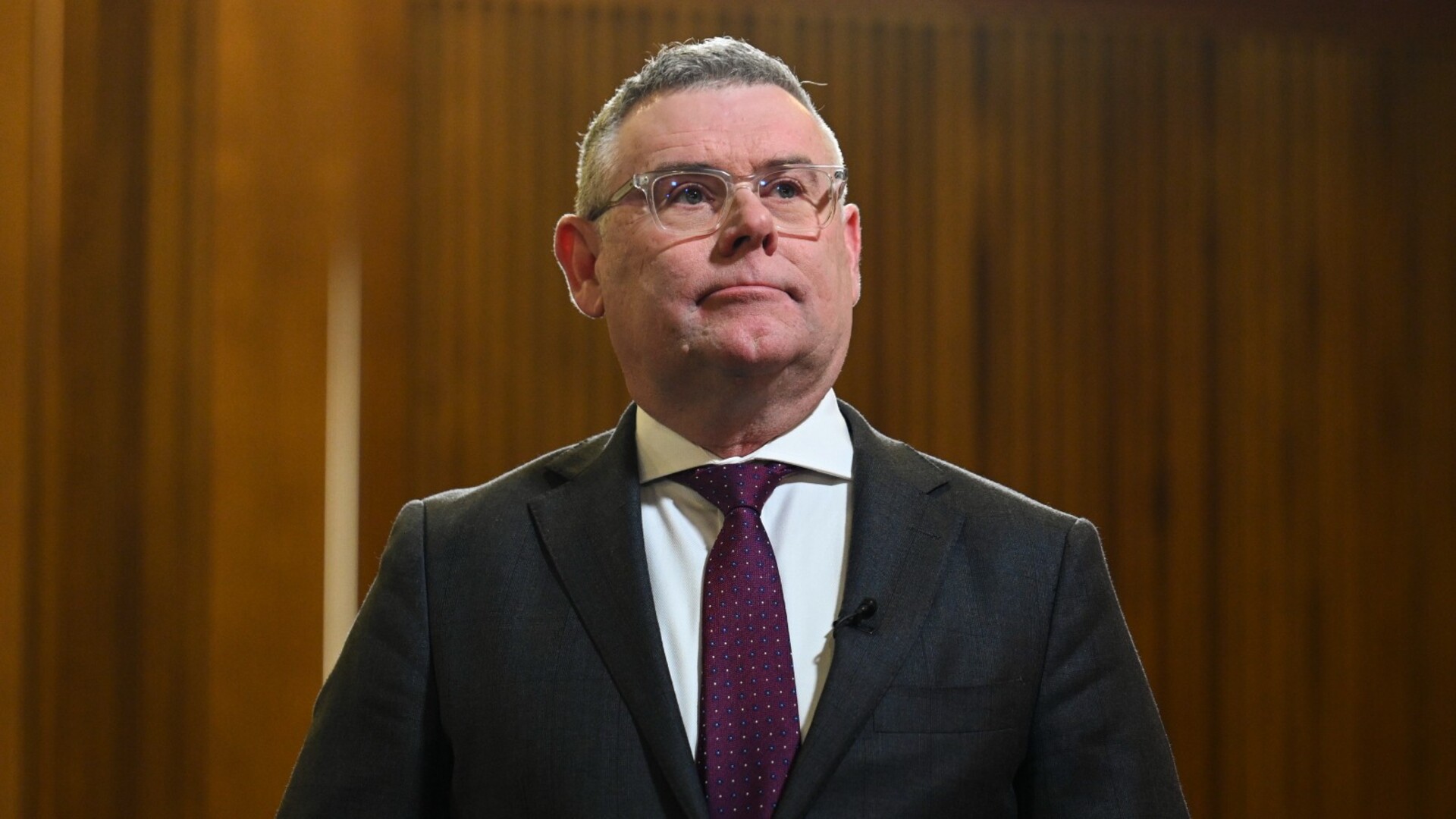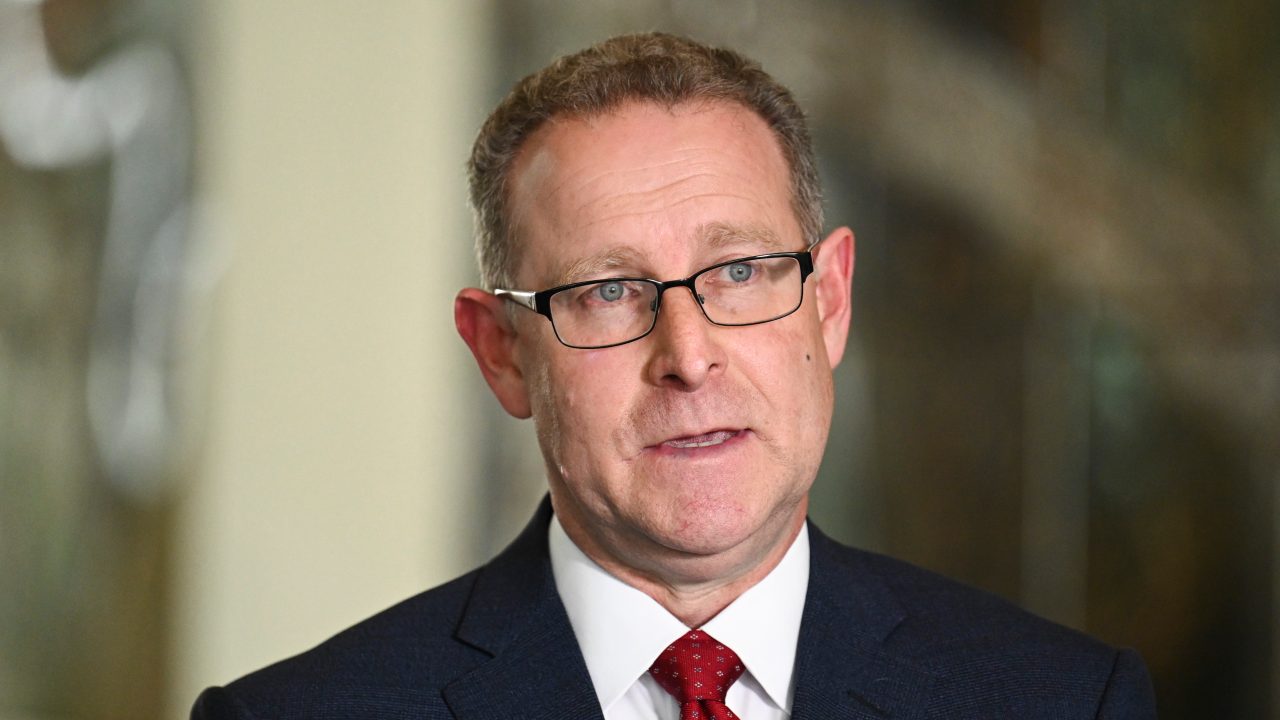'Struggling' small businesses 'can’t afford' Labor’s proposed above inflation wage increase, ACCI's Andrew McKellar says
Small businesses struggling to continue operations "can't afford" Labor's proposed wage increase as productivity remains slow, a leading business body has argued.

A leading business body has lashed out at Labor’s call for a wage increase above inflation while productivity remains low, arguing “struggling” small businesses “can’t afford” the bump.
Prime Minister Anthony Albanese has called for a real wage increase above inflation in the government’s submission to the Fair Work Commission.
Inflation for the 12 months to the December quarter was 2.4 per cent, while the wage price index, which measures changes in the price of labour for all workers, was up 3.2 per cent - the same as trimmed mean inflation.
Labor in the budget said it expects inflation to be around three per cent for the 2026 financial year, while wages are expected to increase 3.25 per cent.

However, the Australian Chamber of Commerce and Industry has called for a bump of “no more than 2.5 per cent” as any increase above this would be “at the expense of small to medium sized businesses”.
“To be sustainable, any increase in wages must be linked to productivity. Yet, labour productivity has been contracting, down 1.2 per cent in 2024 and averaging near zero over the past five years,” ACCI chief executive Andrew McKellar said.
“Failure to align wages growth with genuine productivity improvements risks exacerbating economic challenges and will rekindle inflationary pressure.”
On Wednesday, Mr McKellar voiced concerns about the wage bumps on Sky News, lamenting challenging business conditions plaguing small players in the market.

“We're seeing small business insolvencies are going through the roof unfortunately and that's a real concern,” Mr McKellar said.
“For small and medium sized businesses, they're struggling and they can't afford to pay a big increase.
“I think we've got to be mindful that that's one of the real concerns that we've got in the economy at the moment.”
Coalition frontbencher Dan Tehan warned the cumulative impacts of inflation throughout the last three years of Labor’s time in government meant businesses would struggle to honour these pay rises.
“What you have to be able to do is deal with inflation and if you can't deal with inflation, then businesses struggle (and) the cost of business goes up,” he said.
“So of course (businesses) have difficulty dealing with this.”
Despite this, Industrial Relations Minister Murray Watt said Labor’s proposed wages bump, which is expected to impact almost three million Australians, will not be inflationary.
“In this term of office, each time the FWC has considered the minimum wage, we've argued that the minimum wage should not go backwards,” Senator Watt told Sky News on Wednesday morning.
“We've seen the FWC award slightly higher than inflation wage rises for the lowest paid and at the same time we've brought inflation down.”
The national minimum wage was increased to $24.10 an hour, or $915.90 per week, in July last year.
It was bumped by 3.75 per cent - a touch higher than inflation at the time, which was 3.6 per cent.
The Industrial Relations Minister did not specify the exact increase Labor sought, but stressed the government had sent a “very strong signal” to the FWC the bump should be a real wage increase.
“It's a matter for them to weigh up a whole range of factors and determine what's economically sustainable, but what we want to do as a Labor government is get wages (to) continue to move,” Senator Watt said.

The push appears at odds with Reserve Bank Governor Michele Bullock’s comments on Tuesday.
Addressing media after the RBA announced its latest interest rates decision, Ms Bullock said there could be wages growth quarter to quarter, but not in the medium term.
“If productivity didn’t pick up, then that means that the rate of nominal wages growth that can be sustained and be in line with the inflation target is lower,” she told reporters.
Pressed on whether this contributed to the central bank's decision to hold rates, Senator Watt on Wednesday afternoon said interest rate decisions were "a matter for the Reserve Bank", before hitting back at the suggestion inflation stayed higher due to wage increases.
"I haven't seen any evidence produced by any economist that shows interest rates or inflation would have come down faster if it hadn't been for wage rises," he said.
